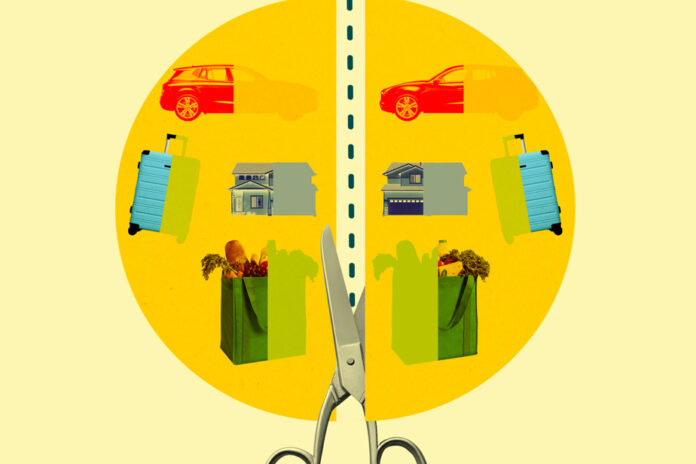Life as a couple is a long, impetuous river. At times impecunious.
Through the twists and turns, backwaters, waterfalls and financial shoals, is there an ideal, universal way to manage your spending?
“No, there is no optimal way,” replies Hélène Belleau, full professor at the INRS Urbanization Culture and Society Center and author of numerous studies on couples and money. “There are contexts that must be taken into account. Does the couple want to manage separately or want to put it all together? »
Olga Cherezova, budget advisor at ACEF de l’Est de Montréal, shares (fairly) this opinion. “There is no ideal method per se,” she agrees. The word “fairness” is important, but more important is the word “communication”. »
Methods for managing expenses within the couple are divided into two main categories.
In the first, income and expenses are merged into a large whole. In the second, common expenses are divided into two parts – not necessarily equal, egalitarian or equitable…
Also, in all these big calculations, is it better to use gross revenue or net revenue? At ACEF de l’Est de Montréal, budget advisors always work with net income, “because that’s what people live with,” specifies Olga Cherezova.
“We also have to consider allowances, tax credits, really include all the income we receive,” advises the advisor.
Net pay, however, increases in the second half of the year, when social charges are paid, and then falls again the following January. You have to follow the roller coaster.
In relatively simple situations, especially without children, it will probably be easier to work with gross income for the pro rata calculation. In any case, given the tax brackets, the spouse with a lower income may benefit.















